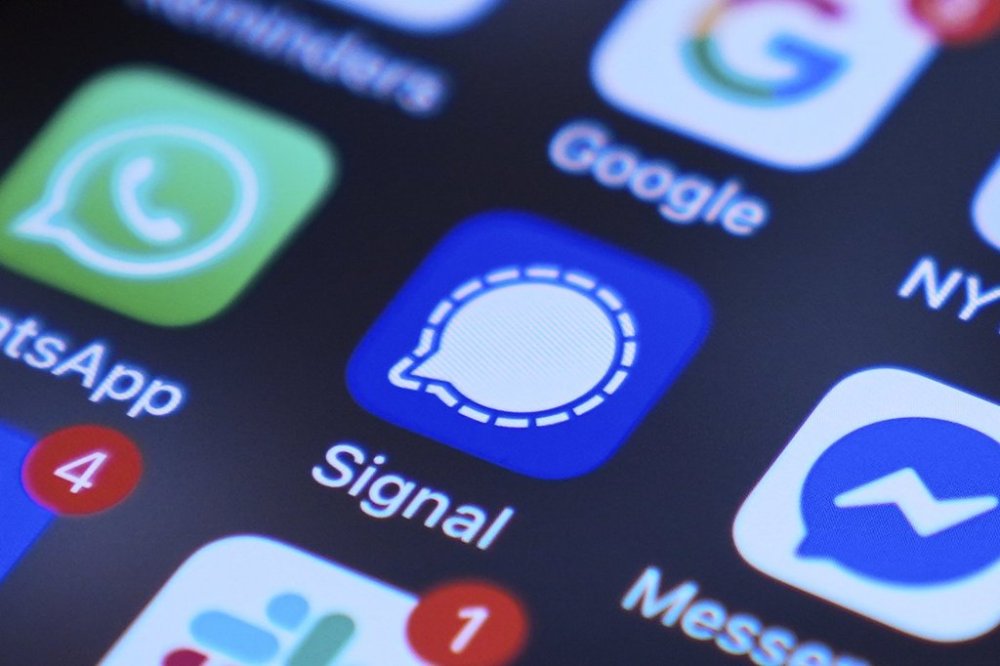Judge says he will order government to preserve Signal messages about Houthi military strike
Advertisement
Read this article for free:
or
Already have an account? Log in here »
We need your support!
Local journalism needs your support!
As we navigate through unprecedented times, our journalists are working harder than ever to bring you the latest local updates to keep you safe and informed.
Now, more than ever, we need your support.
Starting at $15.99 plus taxes every four weeks you can access your Brandon Sun online and full access to all content as it appears on our website.
Subscribe Nowor call circulation directly at (204) 727-0527.
Your pledge helps to ensure we provide the news that matters most to your community!
To continue reading, please subscribe:
Add Brandon Sun access to your Free Press subscription for only an additional
$1 for the first 4 weeks*
*Your next subscription payment will increase by $1.00 and you will be charged $20.00 plus GST for four weeks. After four weeks, your payment will increase to $24.00 plus GST every four weeks.
Read unlimited articles for free today:
or
Already have an account? Log in here »
Hey there, time traveller!
This article was published 27/03/2025 (194 days ago), so information in it may no longer be current.
WASHINGTON (AP) — A federal judge on Thursday said he will order the Trump administration to preserve records of a text message chat in which senior national security officials discussed sensitive details of plans for a U.S. military strike against Yemen’s Houthis.
U.S. District Judge James Boasberg said during a hearing that he’ll issue a temporary restraining order barring administration officials from destroying messages sent over the encrypted messaging app Signal.
A nonprofit watchdog, American Oversight, requested the order. A government attorney said the administration already was taking steps to collect and save the messages.

The Atlantic published the entire Signal chat on Wednesday. Its editor-in-chief, Jeffrey Goldberg, had been added to a discussion that included Defense Secretary Pete Hegseth, national security adviser Michael Waltz, Secretary of State Marco Rubio, Vice President JD Vance and Director of National Intelligence Tulsi Gabbard.
On the chat, Hegseth provided the exact timings of warplane launches and when bombs would drop before the attacks against Yemen’s Houthis began earlier this month. Hegseth laid out when a “strike window” would open, where a “target terrorist” was located and when weapons and aircraft would be used.
The images of the text chain posted by The Atlantic show that the messages were set to disappear in one week.
American Oversight sued this week to ensure that the records are kept in accordance with the Federal Records Act. The group suspects that administration officials routinely use Signal to communicate.
“Defendants’ use of a non-classified commercial application even for such life-and-death matters as planning a military operation leads to the inevitable inference that Defendants must have used Signal to conduct other official government business,” American Oversight’s attorneys wrote in a court filing.
Boasberg limited his order to messages sent between March 11 and March 15.
“We are still ascertaining what records the agencies have,” Justice Department attorney Amber Richer said.
“I’m glad we could figure out a solution,” the judge later said. He instructed the government to provide him with an update Monday.
White House press secretary Karoline Leavitt has said no classified information was posted to the Signal chat. Hegseth’s spokesman, Sean Parnell, said in a statement Wednesday that “there were no classified materials or war plans shared. The Secretary was merely updating the group on a plan that was underway.”
Gabbard and CIA Director John Ratcliffe told members of the Senate Intelligence Committee on Tuesday that Hegseth was responsible for determining whether the information was classified.
American Oversight’s attorneys argued that the public is entitled to access government records even if they are auto-deleting messages that originated on officials’ private phones.
“This is nothing less than a systematic effort to evade the rules for record retention in the federal government,” they wrote. “There is no legitimate reason for this behavior, which deprives the public and Congress of an ability to see the actions of government.”
Boasberg has been at odds with the administration over a separate case involving flights deporting Venezuelan immigrants to El Salvador under an 18th century wartime law. He temporarily blocked the flights and ordered at least two planes carrying immigrants to turn around, but that didn’t happen. The judge has vowed to determine whether the administration ignored his turnaround order.
Boasberg, who was nominated by Democratic President Barack Obama, noted during Thursday’s hearing that his order shouldn’t harm the government since the agencies already were working to preserve the Signal messages.
